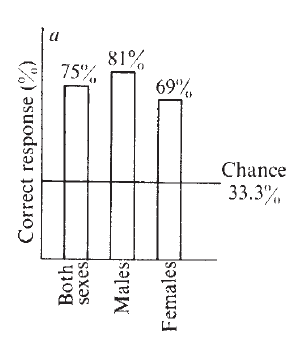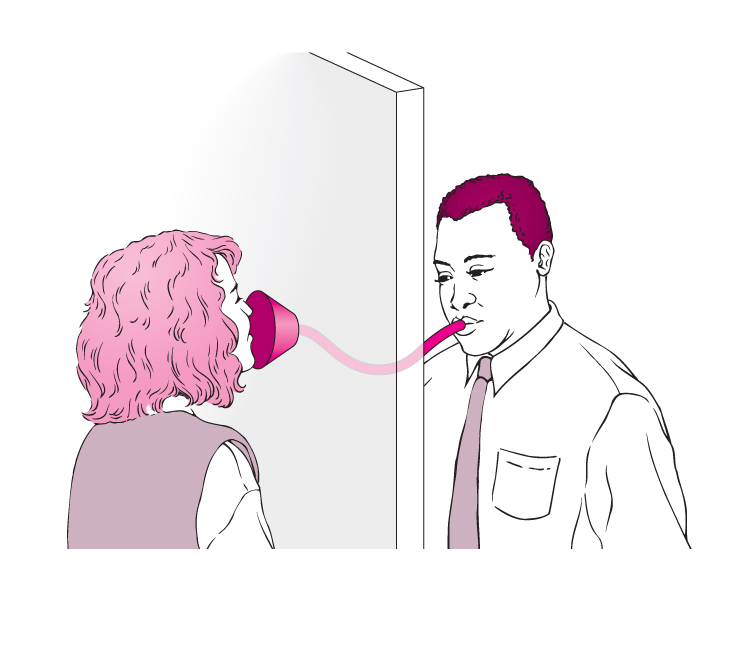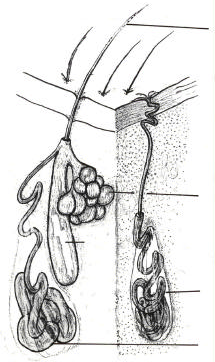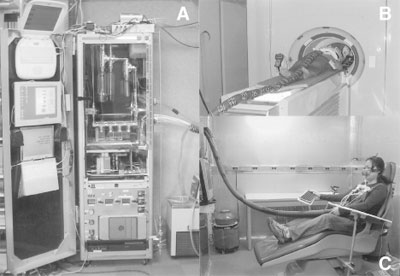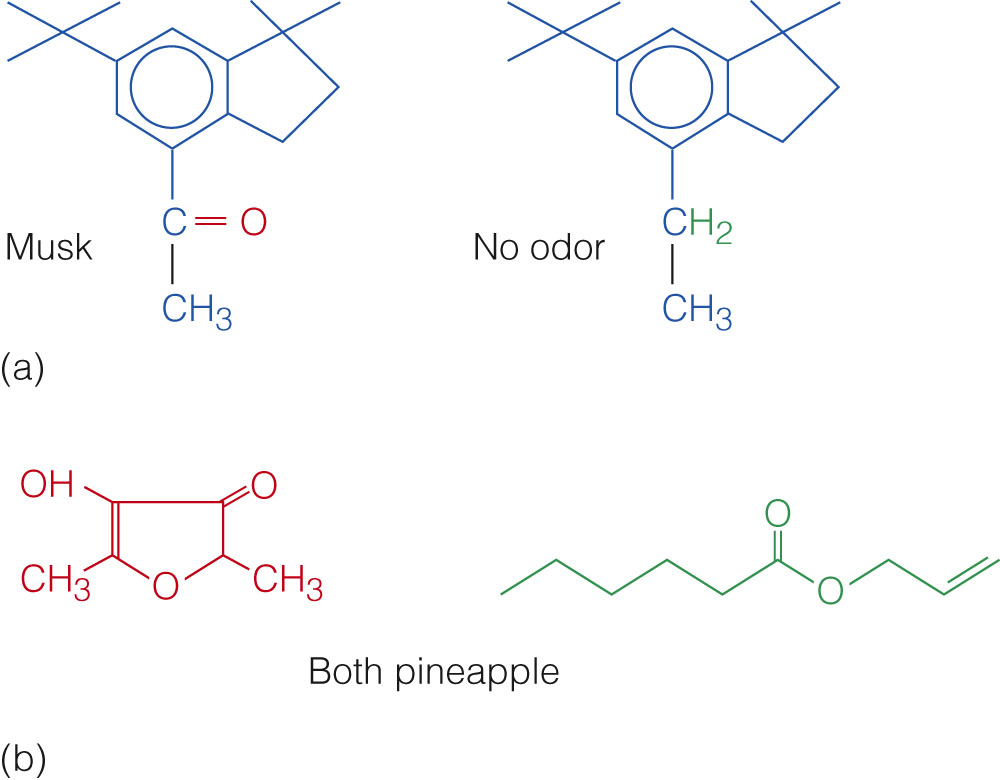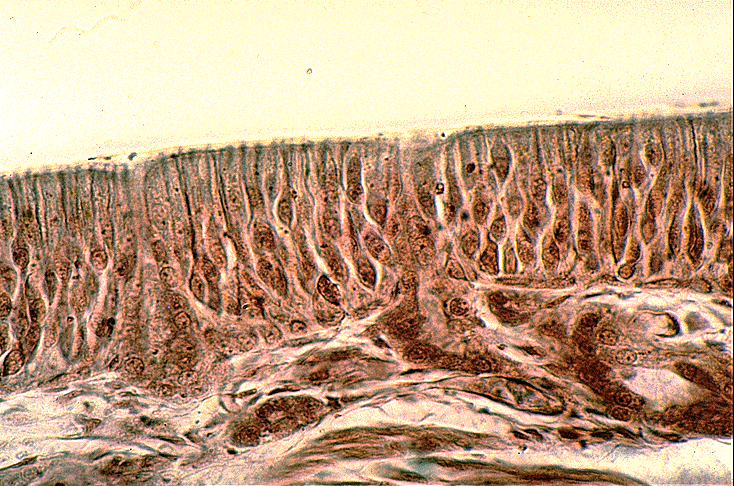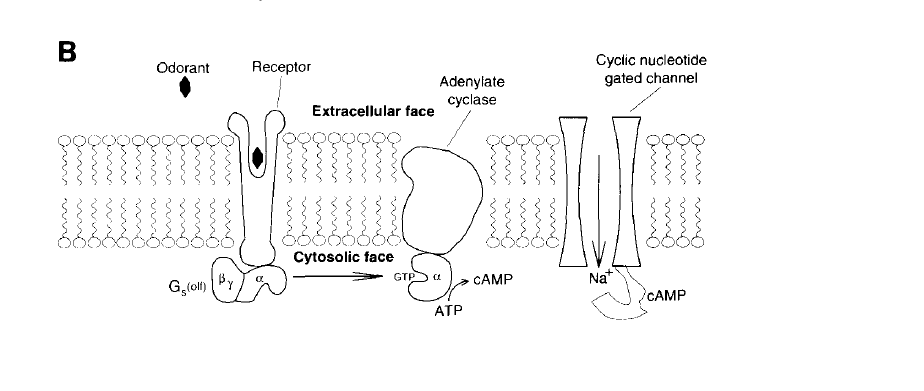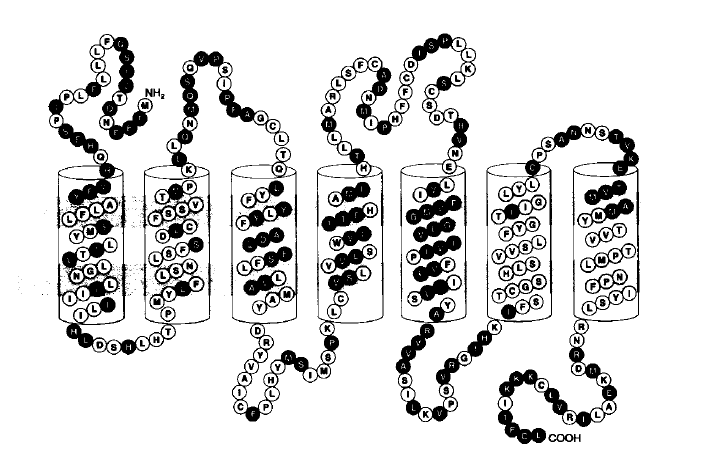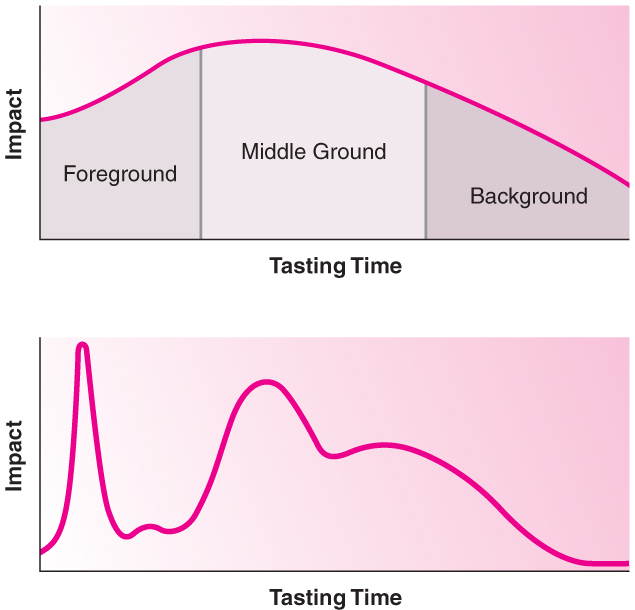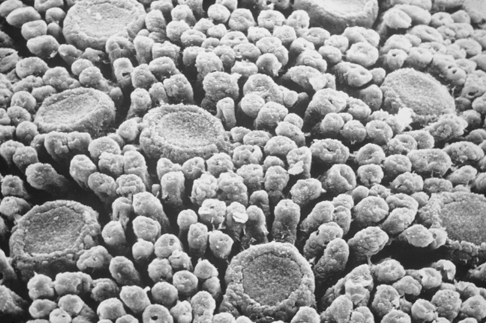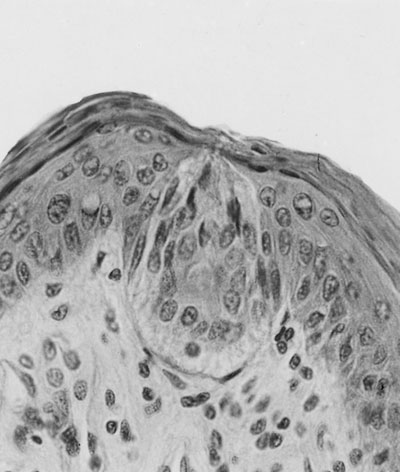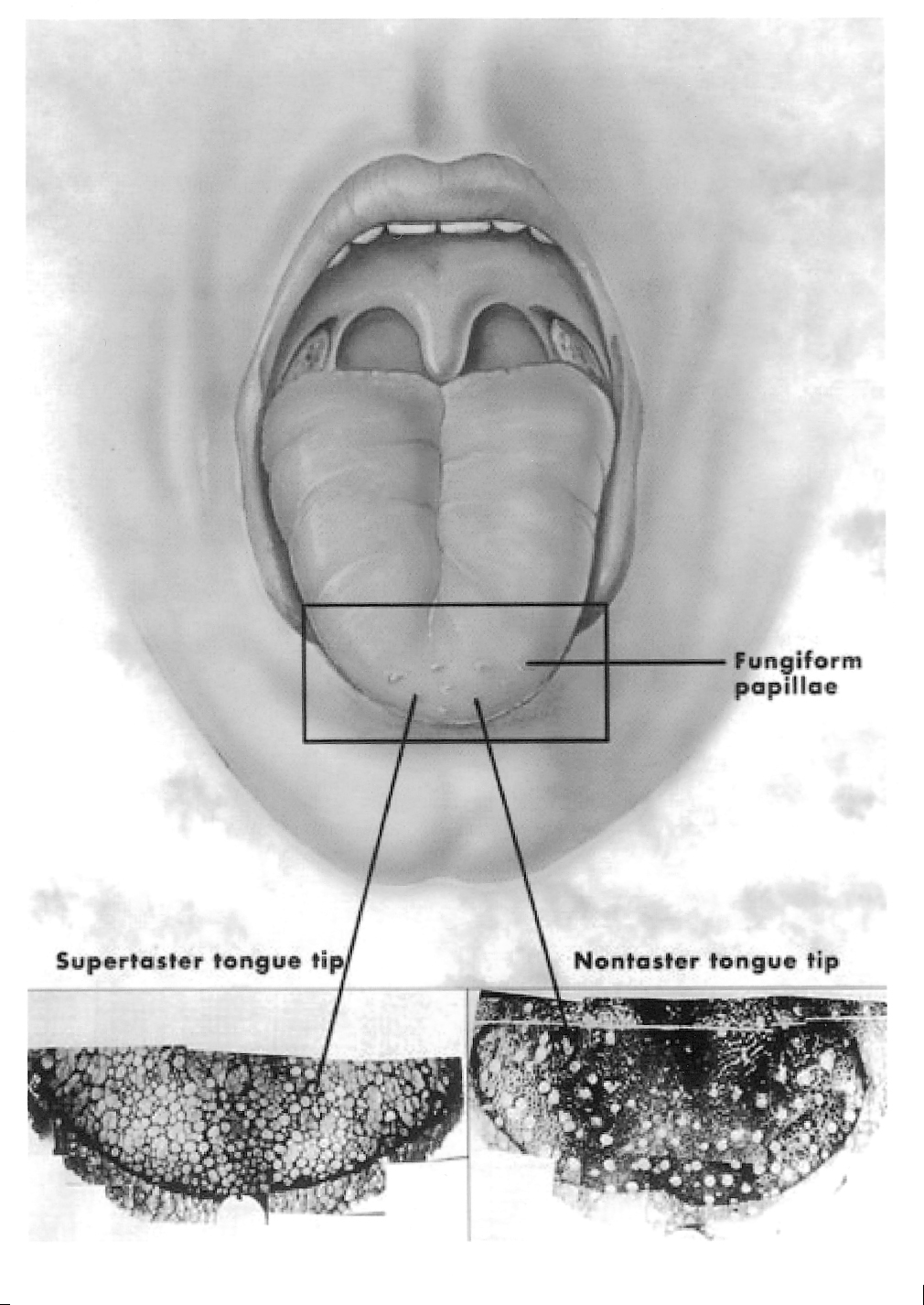第十五講:The Chemical Senses
出自KMU Wiki
(修訂版本間差異)
| 在2011年12月30日 (五) 06:06所做的修訂版本 (編輯) Fivesix27 (對話 | 貢獻) (新頁面: = The Chemical Senses = === 化學感覺 === *Chemical senses **刺激對象是化學分子 ***水溶性—味覺 ***脂溶性—嗅覺 *與「食」「色」相關 === 動物的嗅覺 ...) ←上一個 |
在2012年1月8日 (日) 20:53所做的修訂版本 (編輯) (撤銷) 98007013 (對話 | 貢獻) (→Genetics of taste) 下一個→ |
||
| 第240行: | 第240行: | ||
| *外觀 | *外觀 | ||
| [[Image:Chemical Senses13.jpg]] | [[Image:Chemical Senses13.jpg]] | ||
| + | |||
| + | |||
| + | [[ 知覺心理學 ]] | ||
在2012年1月8日 (日) 20:53所做的修訂版本
目錄 |
The Chemical Senses
化學感覺
- Chemical senses
- 刺激對象是化學分子
- 水溶性—味覺
- 脂溶性—嗅覺
- 刺激對象是化學分子
- 與「食」「色」相關
動物的嗅覺
- 重要感覺 macrosmatic
- mark territory(領域標示)
- cue for orientation(方位導引)
- guide for food source(食物來源搜尋)
- sexual reproduction(生殖)
- 多種動物嗅覺器官在前進方向之最前端
Olfaction 對於人類
- 一種不易描述的感覺
- 聞起來「像」什麼來形容
- 但深入影響生活
- 賣二手車的人,會在車箱內噴塑膠氣味
- 聞起來「像」新車
- 或在塑膠椅上噴皮革氣味
- 賣房子,先煮咖啡(或是茶)
- 聞起來「像」個家
- 賣二手車的人,會在車箱內噴塑膠氣味
- olfaction as gatekeepers(守門員)
- 避免危害健康的物品
- 有毒
- 腐敗
- 選取有益的
- 有營養
- 新鮮
- 避免危害健康的物品
- 近幾年來市場很大(以億為單來算)
- Perfume(香水)
- Deodorant(去味劑)
- aroma therapy(香療法)
- 其實人類能力也很強
- 主要差異可能來自receptors數目的差異
- 人約千萬
- 狗約十億
- 主要差異可能來自receptors數目的差異
- Wallace(1977)
- 聞帶過的塑膠手套辨性別 ♂ 80% ♀更高
- Russell(1976)
- 聞穿過的T-shirt
- 辨自己、其他男子、其他女子
- Wells and Hepper (2000)
- 聞狗用過的毛毯辨自己的狗
- Doty et al.(1982)
- 吐氣辨男女
- 女性辨識較佳
- 男生吐氣比較難聞
- 吐氣辨男女
pheromones
- 各種動物均分泌
- 尤其是雌性
- for sexual reproduction
- 蛾(cabbage moth)可傳遞好幾哩以上
- 「情人眼裡出西施」
- McClintock (1971)
- menstrual synchrony(月經同步)
- 尤其是雌性
- 來自何處
- 有氣味嗎?
Sexual chemosensory
- Zhou and Chen (2008)
- 提供腋下分泌物:男性(看二種影片)
- 受試者:女性 依變項: fMRI
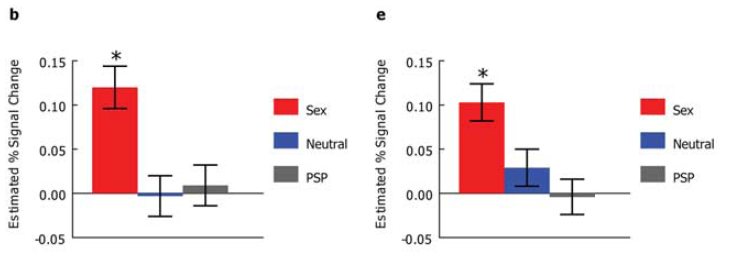 Zhou, W., and Chen, D. (2008) Encoding human sexual chemosensory cues in the orbitofrontal
and fusiform cortices. The journal of neuroscience. 28 (53). 14416-14421.
Zhou, W., and Chen, D. (2008) Encoding human sexual chemosensory cues in the orbitofrontal
and fusiform cortices. The journal of neuroscience. 28 (53). 14416-14421.
Stimulus for smell
- volatile易揮發
- Weber的可怕實驗
- 倒立點香水至鼻子中—聞不到
- 可能是弄傷了receptors
- Weber的可怕實驗
- Odorant(氣味分子)
- fat-soluble(脂溶性)
- Odor detection thresholds
- P.537 table 15.1
compound threshold Methanol 甲醇 141,000 Acetone 丙酮 15,000 Formaldehyde 甲醛 870 Menthol 薄荷醇 40 T-butyl mercaptan 硫醇 0.3
如何量嗅覺
- olfactometer《Figure15.1》
- odor detection
- Olfactometer(嗅覺儀)
- Olfactory quality
- 嗅覺在嗅化學嗎?
嗅覺神經
- olfactory mucosa
How to smell
- OSN之cilia
- 約有1,000種不同的protein(蛋白質)
- 均七次穿越membranes(類似photopigment)
- 活動機轉相似
- 大部分結構相同
- specific anosmia(特定嗅覺喪失)
- cilia 之membrane(膜)
- protein
- Olfactory binding protein
- odorant molecules
- cilia -> 打開ion channel
- OSN
- olfactory bulb(嗅球)
嗅覺神經
- olfactory receptor neuron 《Figure15.4》
- Glomerulus《Figure15.5》
- 嗅覺接受器與氣味《Figure15.6》
- 嗅球《Figure15.7》
- Optical imaging
- a.羧酸 b.脂肪醇
- Optical imaging
- 2-DG《Figure15.8》
高階嗅覺處理
- in brain《Figure15.9》
- 示意圖《Figure15.10》
- 實際
- 日常嗅覺情境《Figure15.11》
- Piriform cortex 梨狀皮質 (分散編碼)《Figure15.12》
- 經驗(認知)影響
- 同一氣味給不同命名《Figure15.13》
Sense of Taste
- Taste 味覺
- 酸、鹹、甜、苦、(鮮)
- Flavor 風味
- 味覺+口感(食物質感、軟硬、溫度....)
- 味道
- 再加嗅覺
- chewing and taste(咀嚼與味覺)
- 日常飲食時的感受
Stimulus for Taste
- soluble 可溶於水
- 平常唾液(saliva)幫助溶解
- 一天分泌約740cm3
- 包含citric acid(檸檬酸)
- 將澱粉分解
味覺分類
- Aristotle
- Sweet(甜), sour(酸), salty(鹹), bitter, pungent(辣), harsh(刺的), astringent(澀味的)
- Henning
- sweet, sour, salty, bitter
- Ikeda (1908)
- umami (Japanese 旨味)鮮味
Umami
- 新研究
- Sabstances物質 (Lindemann, 2000)
- cortical response大腦反應 (Rolls, 2000)
- Receptors接受器 (Chaudhari, Landin and Roper, 2000)
- Primary taste??
- Erickson (1980) 的approach(研究方向)
- Primary(原始味覺) 可以不受其他混合的影響
- 即可從multicomponents(複雜分子)中找到
- complex tastes are not analyzed into primay components (複雜的味道不能分析到原始味覺單位)(Erickson, 1982)
- Erickson (1980) 的approach(研究方向)
Taste qualities
- 由basic taste qualities《Figure15.14》
- Tongue《Figure15.15&16》
Taste receptors
- papillae 外形及分佈(補充)
- filiform 絲狀體(整個舌,形如絲)
- fungiform 蕈狀體(舌尖與側,形如菇)
- foliate 葉狀體(側邊,皺折)
- cirvumvallate城廓狀體 (舌根,扁圓)
- Papillae
- Taste buds味蕾
- Taste cell味覺細胞
- Microvilli 微絨毛
- supporting cell支持細胞, connective tissue結締組織, sensory nerve fibers感覺神經纖維
- taste buds 味蕾
味覺通道
- 到大腦《Figure15.17》
- 神經登錄
- distributed coding《Figure15.18》
- Specificity coding《Figure15.19》
- Chorda tympani nerve 《Figure15.20》
在brainstem
- Scott & Giza (1990)
- 在NST (nucleus of the solitary tract) 測兩個細胞的反應
- 舌上放amiloride(一種利尿劑,放在舌上可以阻斷鹹味)
- 再在舌上放置不同物質來觀察神經活動
- 結果如下頁《Figure15.21》
味道flavor
- 味道﹣嗅覺=
- 《Figure15.23》
Orbitofrontal cortex
- 整合各種感覺的地方《Figure15.24》
- 神經與行為反應《Figure15.25》
Genetics of taste
- PTC (phenylthiocarbamide) – bitter
- nontaster (taste-blind to PTC)
- PROP (6-n-propylthiouracil)
- 25% taste-blind to PTC/PROP
- 外觀
